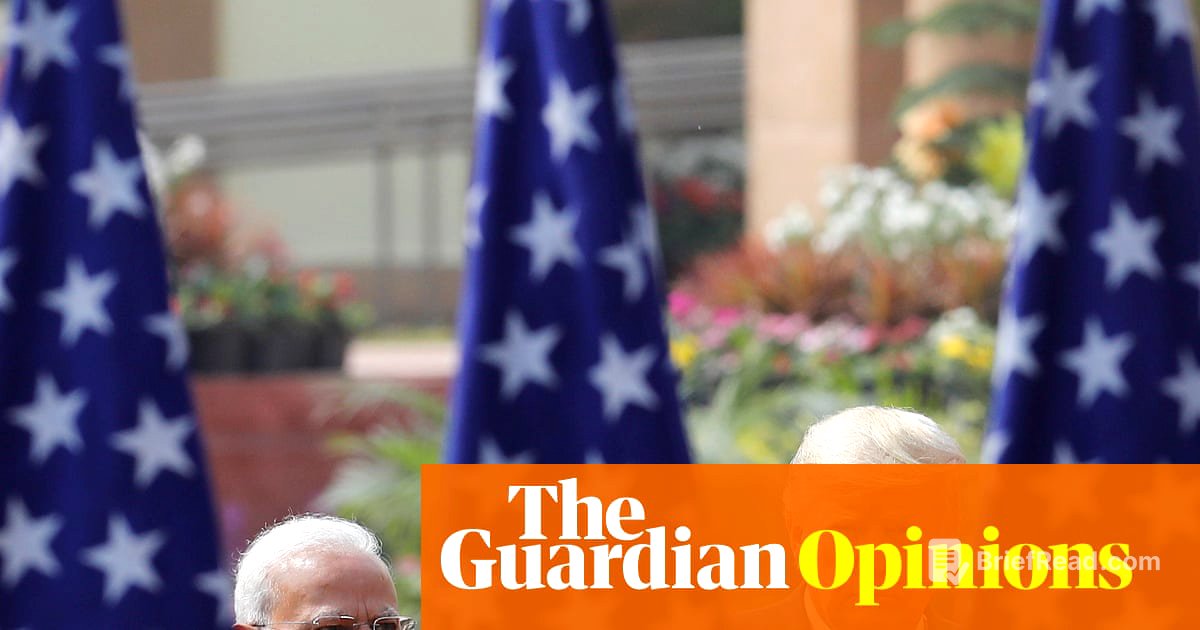TLDR;
This article examines the evolving relationship between India and the United States, particularly in light of Donald Trump's policies. It highlights how India's efforts to cultivate a close relationship with the US have been challenged by Trump's protectionist measures and a shifting global order. The author argues that India must navigate a complex geopolitical landscape, balancing its strategic autonomy with the realities of a world where Western benevolence is waning.
- India's relationship with the US has been impacted by Trump's tariffs and foreign policy decisions.
- India's policy of non-alignment, or "strategic autonomy," is crucial for navigating a multipolar world.
- The rise of far-right parties in the West signals a shift towards protectionism and a decline in Western hegemony.
[Trump's Impact on Indo-US Relations]
The article begins by noting the initial optimism among India's ruling elite regarding Donald Trump's second term, given Prime Minister Narendra Modi's efforts to build a strong rapport with him. However, this relationship was strained when Trump imposed tariffs on India, initially a 25% tariff that then doubled to 50% as a punishment for India's continued purchase, refinement, and export of Russian oil during the Ukraine war. This action, along with Trump's intervention in India-Pakistan relations, undermined Modi's efforts to portray himself as a well-connected statesman.
[India's Foreign Policy and Strategic Autonomy]
Despite the setback in relations with the US, the author emphasises that India's foreign policy is rooted in strategic autonomy, reminiscent of its non-alignment stance during the Cold War. This approach allows India to maintain its freedom of action in a multipolar world, as demonstrated by its ability to buy Russian oil and re-export it to Europe. However, the article notes that India's tilt towards the US over the past quarter-century has created an imbalance in its foreign policy.
[The Illusion of a "Natural Partnership"]
The article suggests that India's political class has increasingly viewed the US as a "natural partner," driven by economic ties and the aspirations of its elite. This perception was reinforced by initiatives such as the Indo-US nuclear deal and the Quad alliance. However, the author argues that India's economic status and cultural identity prevent it from being fully accepted as a member of the Western or Anglophone world, leading to a situation where the US views India as either a supplicant or a nuisance.
[The Shifting Global Order and the Rise of Protectionism]
The author contends that Trump's actions are not merely the whims of a maverick but rather a sign of a broader shift towards protectionism in the West. The decline of Western hegemony, coupled with the rise of China and the climate crisis, has led to a retreat from the post-war order and the rise of far-right parties advocating nativism and protectionism. This trend poses a challenge for India and other non-Western countries, as Western nations fortify their positions.
[India's Path Forward]
In conclusion, the article suggests that Modi, like his predecessors, is learning the importance of non-alignment and strategic autonomy in navigating a hostile world. India must balance its relationships with major powers, avoiding both confrontation with the US and subservience to it. The author emphasises the need for India to walk a tightrope, carefully considering its choices in a complex geopolitical landscape.









